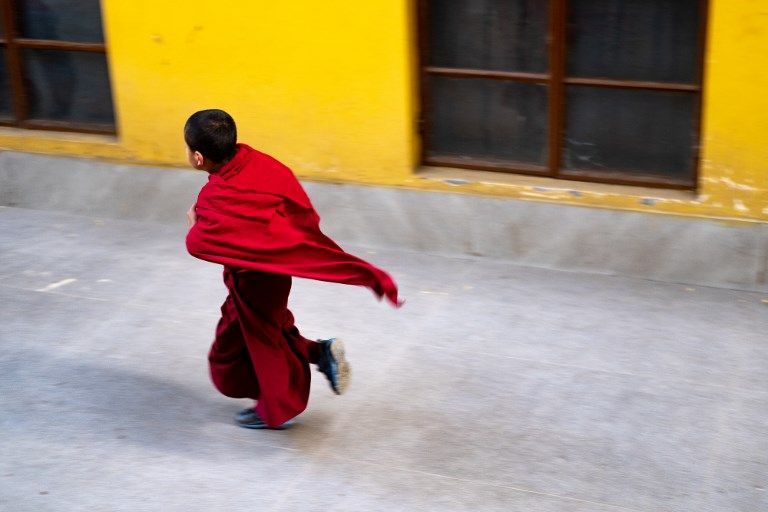©Laurene Becquart / AFP
Under the influence
In a logic of soft power beyond its borders, China is trying to promote Buddhism and would seek to take control of the choice of the next incarnation of the Dalai Lama.
Atlantico: How can China, an officially atheist regime, want to decide on the next incarnation of the Dalai Lama? What are the stakes of this potential reincarnation for China?
Emmanuel Lincot: The party-state, even if it were atheist, is above all secular. No religious obedience escapes its control. The rivalry between it and the Tibetan government in exile is a legacy of history, a question of image and a strategic issue. Why ? Tibet, in the extension of neighboring Xinjiang, is the pivotal axis of the strategy implemented by Beijing around what is called the New Silk Roads. These regions give access not only to Central Asia, which China covets, but also to India, with which relations are made complex by a very large number of border disputes. In other words, the Dalai Lama and the problem of his succession is of course a symbol but also a most sensitive deadline around which crystallize both national tensions and divergent interests. It’s a safe bet that the Indian authorities will side with the views of the current Dalai Lama – welcomed in their territory since 1959 – in the choice of his own successor, while the Chinese government will support a candidate for reincarnation corresponding to its own criteria. The visit in June 2015 of Gyaltsen Norbu to Xi Jinping in the Chinese capital goes naturally in this direction. But far from being a matter of internal politics, the de facto Tibetan question will be a major point of friction between Beijing and New Delhi for years to come.
Why does China promote Buddhist culture outside its borders, for example investing 3 billion dollars in the birthplace of the Buddha (Lumbini)? Is it a form of “soft power”?
Absolutely. For example, Xi Jinping’s evocation of Buddhism as a memorial link uniting China and India took place in May 2015 during Prime Minister Narendra Modi’s visit to Xi’an in a very significant way. at the foot of the Wild Goose Pagoda. In retrospect, this was, I believe, the prelude to an even more ambitious deployment of Chinese interests in overseas Buddhism. It is also a way of laying down milestones to ultimately prepare for visits by Chinese pilgrims and thus to better control them. Both culture and religion, in this configuration, are subordinated to a global political strategy. Beijing also encourages the “nationalization” of religious currents of foreign origin, that is to say their appropriation. The academic Ji Zhe has published a convincing work on this subject: “Religion, modernity and temporality. A sociology of contemporary Chan Buddhism” (CNRS, 2016).
What is its policy towards Buddhists residing in China? Why does she want to “sinicize” Chinese Buddhism?
The approaches are sometimes very different from one region to another, from one obedience to another. Obviously, the Lamaic clergy is the most controlled of all. The authorities can only encourage this sinicization but I would say that it is a constant fact in Chinese history. Religions are transformed. Chan – better known by its Japanese name of Zen – is the first beginning of a phenomenon of acculturation observable elsewhere. Thus, there is a Chinese Christianity and specifically Chinese practices regarding their understanding of the Gospels. China is a laboratory of religions. And for good reason: they raise the question of values, of the meaning given to life; crucial question for this society which for more than a century has never ceased to be brutalized. Buddhism, Sinicized or not, can provide both answers and comfort in this context of crisis.
We want to say thanks to the author of this post for this remarkable content
China: The battle for control of the reincarnation of the Dalai Lama’s soul
You can view our social media profiles here , as well as other pages on related topics here.https://nimblespirit.com/related-pages/

